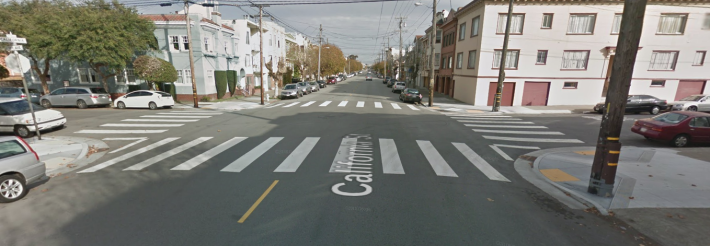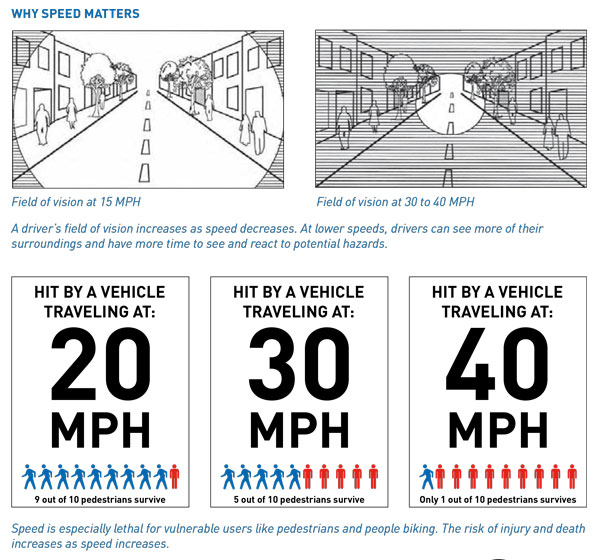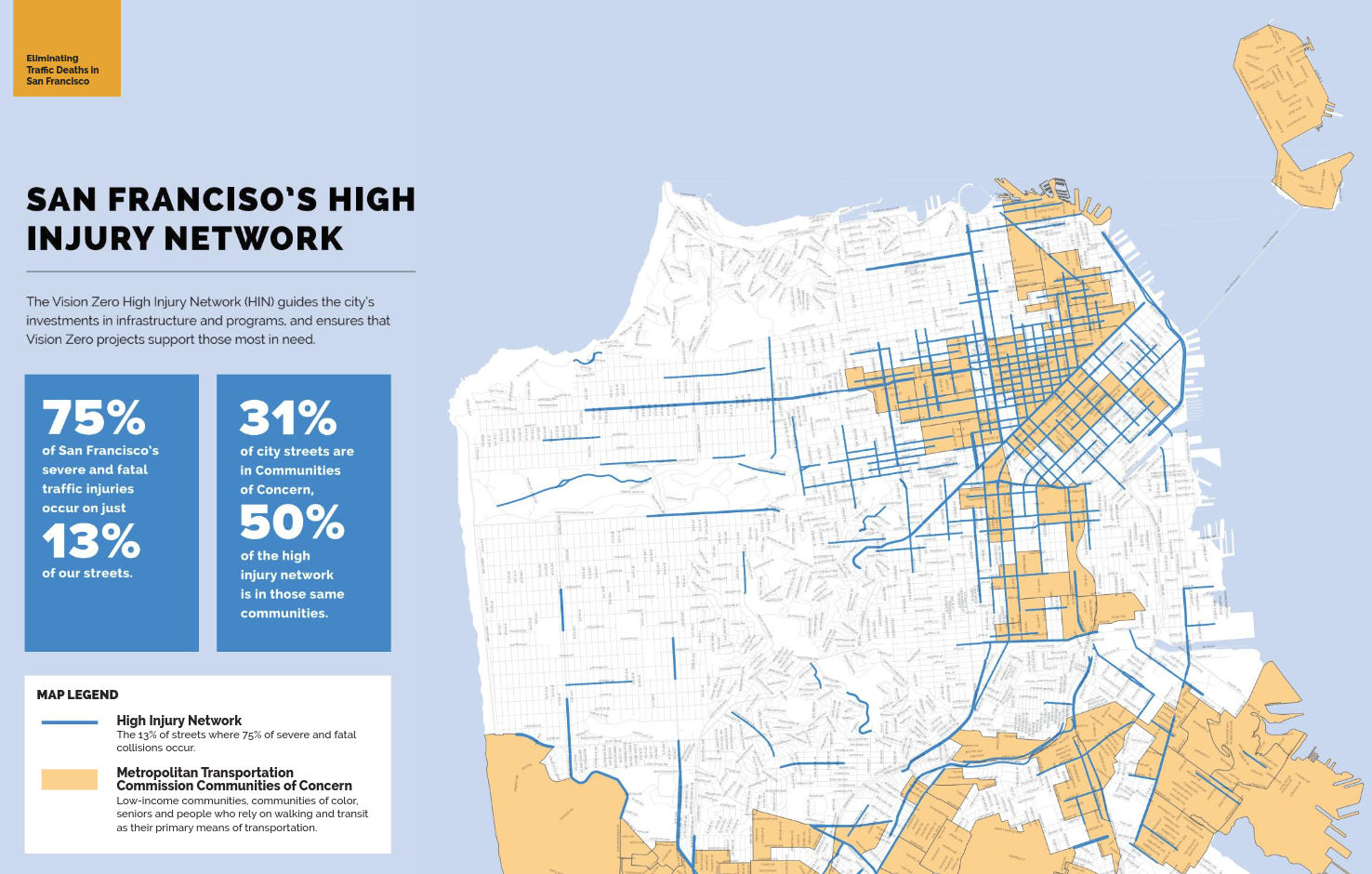Zhao Guan, a 64-year-old woman, was killed by a hit-and-run motorist while crossing California and 18th Avenue Tuesday evening. That same rainy night, two other people walking were seriously injured in separate incidents.
Against that unfortunate backdrop, yesterday the SFMTA released its 2019 "Vision Zero Action Strategy," guide--a blueprint for eliminating severe and fatal crashes by 2024. From the agency's release:
Since 2014, San Francisco has implemented more than 230 miles of safety improvements, initiated more than a dozen public awareness campaigns, and issued almost 175,000 citations for the most dangerous traffic violations. And that work has made our city’s streets safer, but it’s not enough.
In 2014, 30 people were killed in traffic crashes. By 2017, San Francisco reached the lowest traffic fatality count in its recorded history: 20. And last year was the second least deadly year on record with 23 fatalities.
Of course, that also means the fatality rates are now going back up, not down, albeit with numbers that are too small to draw hard conclusions.
Goals listed in the Vision Zero Action Strategy guide will be familiar to any safe-streets advocate: pushing for legislation in Sacramento to get automated speed enforcement cameras, reducing the speed limit to 20 mph, and reducing vehicle miles traveled, among other things.
While supportive of those goals, Walk San Francisco's Jodie Medeiros, at a Vision Zero press event held Thursday, urged the city to do more. "We are only two months into 2019, and three older adult women have been killed while simply crossing the street," she said. "Seniors make up only 15 percent of our city’s population yet, year after year, seniors account for approximately half of our pedestrian deaths. And sad to say, so far, in 2019, seniors are 100 percent of our pedestrian traffic fatalities. This is deeply disturbing."

"California Street--from this intersection at 18th Avenue to Arguello--has been identified by the City as a high-injury street. Yet it’s one of the few high injury streets in the neighborhood that lacks a comprehensive plan to fix the conditions that make it so dangerous," said Winston Parsons, Community Engagement Specialist at the Richmond Senior Center, during the same event. He added that his center, and a nearby school, "...have long called on the SFMTA to take aggressive steps to make the street safer--yet results have been too slow."
He also said of the crash that killed Zhao Guan, "We need your help finding the driver who fled the scene, who abandoned their responsibility, and who has taken the life of a neighbor. But we also need your help in pushing the City to fix our streets so they are designed so it is difficult to drive recklessly in our neighborhood, so it is safe and easy to be a pedestrian. We need to prioritize investing in transit, pedestrian, and bicycle projects so we can reduce the number of cars on the road. Until we do that--until we put our money where our mouth is--our neighbors will continue be needlessly killed."

As previously reported, just as the chances of someone dying when struck by a car goes up with speed, so it does with age, with seniors five times more at risk of dying from their injuries as those under 65. "What kind of a city can San Francisco claim to be when our seniors are regularly the victims of traffic violence?" asked Medeiros.
"This is the second pedestrian and senior killed within a month in the Richmond District," said Parsons. "It is absurd that our elders, who should be able to enjoy their twilight years in our neighborhood, are routinely being killed just getting from point A to point B."
Streetsblog readers can read the full Vision Zero Action Guide here.





